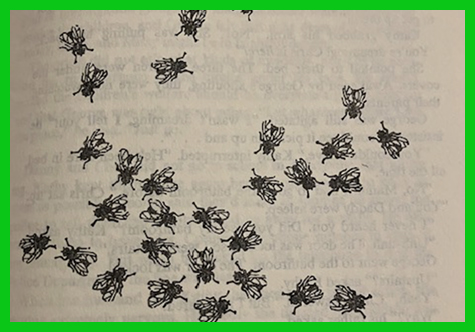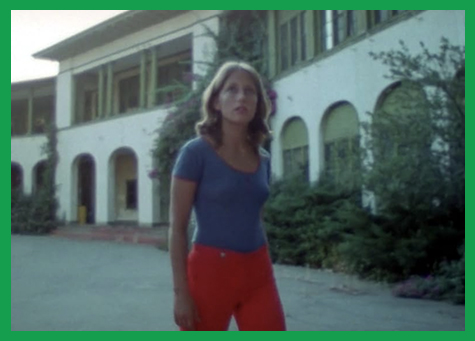
Growing up this time of year – as close as it is to the holidays – it was almost daily that I would return home from elementary school to find an errant rain check for a Christmas toy waiting for my parents in the mailbox; or to find the house toasty warm against the cold, snowy afternoon; or to see yet another screening of Emmet Otter’s Jug-Band Christmas on HBO. And one year, for at least that holiday season, it was the cinematic milk & cookies that accompanied every school day afternoon. I all but came to expect Emmet & Ma and their timeless story of family & holiday cheer waiting for me when I got home.

The short film – based on a 1971 children's book by Russell Hoban and inspired by O. Henry's “The Gift of the Magi” – was directed by Jim Henson (yes, that Jim Henson) and imbued with all the magic of the maestro’s muppetry. It tells the story of young Emmet (an otter) and his widowed Ma (also an otter), both working odd jobs in order to make ends meet in Frogtown Hollow, even when they're taken advantage of for the work that they do. The two are possessed with an unwavering love for one another, but they're also quietly consumed this year by memories of Christmases with their deceased Pa. He taught them to ensure the happiness of the family, even when his own longing was greater than his entrepreneurial plans.

And Christmas is only days away. Emmet yearns for a new $40 guitar, and Ma dreams wistfully of owning a piano again. Good fortune comes in the form of a local talent contest, then, and both Emmet and Ma commit to winning the grand prize, even if they must secretly compete against one another. To that end, Ma hocks the tool chest used for Emmet's odd jobs so that she can sew a nice dress to wear on the night of the contest. And Emmet, meanwhile, punctures a hole in the base of Ma's wash tub (also used for her work as a laundress) so that he can put together a jug-band with his friends.

From there, the 1977 children’s film is wrought with enough dramatic irony and existential dread to trouble any young person who watches it, even when it's laced with charming backwoods duets performed by the show's two protagonists. (And what grownup viewer hasn't felt some sort of existential dread during the holiday season?) But the film seems to save its greatest nightmares for the narrative’s musically-gifted villains: the Riverbottom Nightmare Band. When they're not obnoxiously revving their motors in town or gleefully terrorizing the citizens of Frogtown Hollow with their overall apathy and disregard for order, they're also a hard rock band not to be underestimated by anyone …
… Especially those hoping to win a talent contest.

Led by the surly Chuck Stoat, Stanley Weasel, Fred Lizard, Howard Snake, and "Pop-Eyed" Catfish also enter the local talent show. The band appears to be the only obstacle standing in the otter family's way for a merry Christmas. Yet what makes the band so horrifying is their complete antipathy to everything that the otters – and the viewer – appreciate. Family, hard work, optimism, devotion – these are foreign concepts to the likes of the Riverbottom Gang, who sing that they despise everything they don't understand, which included young me then .. and even you today.

To the young viewers watching this puppet-populated plot unfold, Chuck and his entourage embody a garish, rebellious response to everything that represents normalcy, especially the spirit of the holiday season. The Riverbottom Nightmare Band doesn't apply to the talent contest out of a heartfelt need to nourish good will, like that of Emmet or Ma. There is nothing selfless and charitable in their desire to perform. Rather, their performance looks and sounds like something that will simply win – and it does (spoiler alert!) – because it can. Like the most unconscious slasher in a horror film, the band outperforms our lovable, musically ambitious heroes simply because that's the way this particular story was meant to end, as a scary story more akin to Halloween than Christmas Eve.
Especially today.

It can sometimes feel today as if the bad guys are always going to win, that the good guys can do nothing to save the day. What's worse, we're sometimes made to feel this way not because we – the good guys – lack the heart or skills or talents or tools, but because the darkness seems to so frequently nudge out the light, no matter how bright its glow.

So even as we reflect upon those childhood moments that taught us that the fight against evil was an insurmountable one, we should try to remind ourselves that no evil truly triumphs when we embrace the strength that we have with friends and family. Perhaps it's only natural that we're reminded of the power of those near & dear at this time of year, even when we sometimes forget that that power is with us throughout the year, not exclusive to the holiday season.

And would that every day be like the one demonstrated in this children's film, however mature in its storytelling. Emmet Otter's Jug-Band Christmas dramatizes a message that should resonate with us all:
Where we simultaneously hope to win an impossibly challenging talent contest and discover that everything we ever needed to be happy was always within the reach of our own open arms.


















































You must be logged in to post a comment.